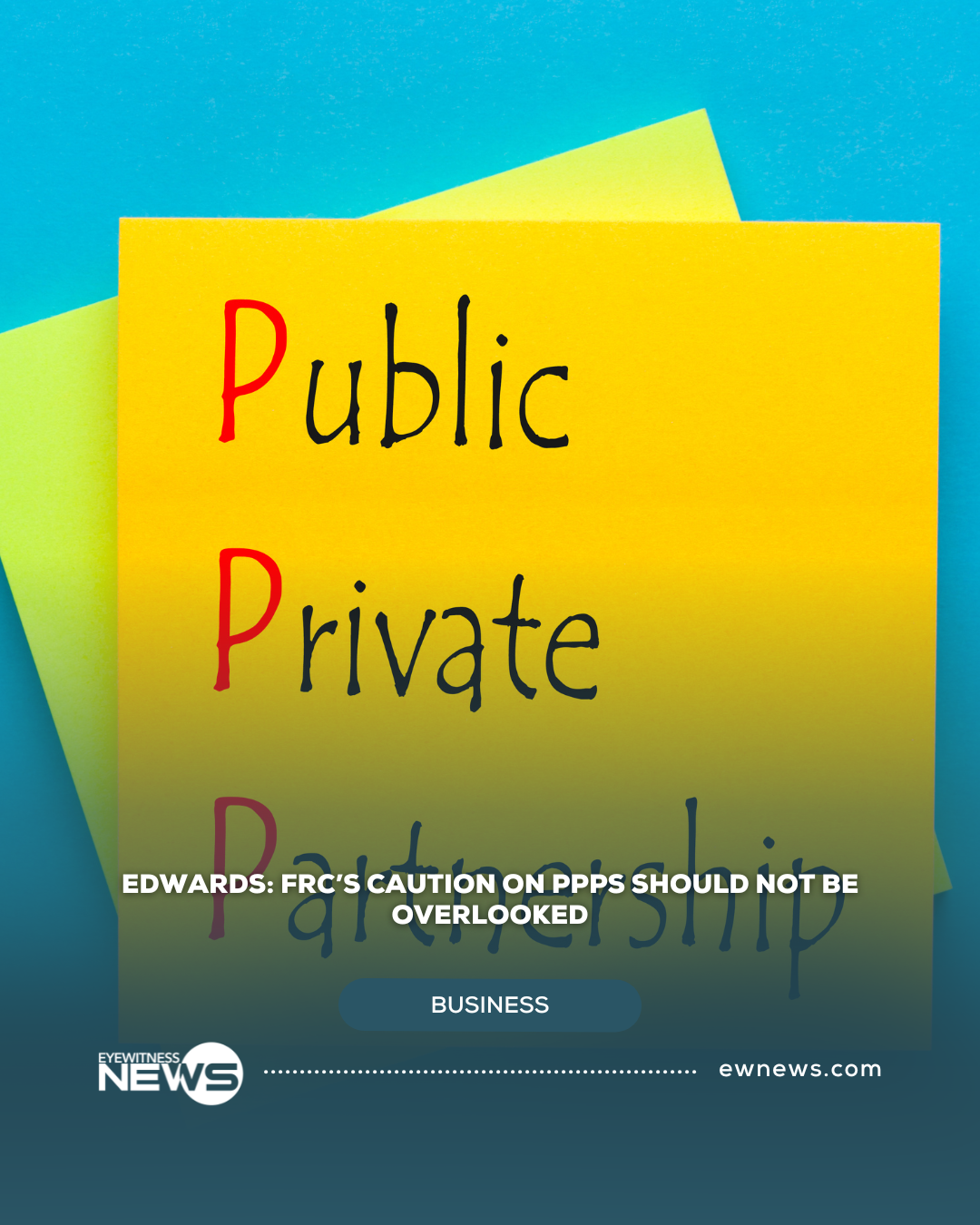NASSAU, BAHAMAS — The Fiscal Responsibility Council’s (FRC) recent assessment of how Public-Private Partnerships (PPPs) are being used in The Bahamas represents “a cautionary signal” that policymakers should not ignore, according to a financial analyst.
Hubert Edwards, Principal of the management consultancy firm Next Level Solutions (NLS) says that PPPs remain a powerful tool to advance national development but must be carefully structured to align with international standards and protect the country’s fiscal position.
“The use of PPP represents a very powerful tool to aid government in advancing its policies, especially where the fiscal space of the country narrows or it is faced with challenges in securing financing,” Edwards explained. “The Bahamas has recently experienced both these realities at differing levels without significant reversals to date. PPPs allow the country to access competent expertise available in the private sector and one may argue more efficient management and execution of projects which directly counters the normative experience with public sector managed projects.”
While the FRC acknowledges the benefits of utilizing PPPs to undertake critical investment projects, which may include in some cases, the assumption of additional risks by the private sector partner, it has also warned of dangers if these arrangements are not properly structured. In its most recent report on the budget, the fiscal watchdog stated: “It should be noted that there could be potential risks to the Government if the PPP arrangements are not properly structured and monitored. The FRC is of the view that there is an urgent need for the Government to assess and manage these risks. Greater discussion on the Government’s approach to PPPs, the manner in which PPPs are structured, the nature and quantum of the Government’s obligations under each PPP arrangement, and how these align with the Government’s risk profile and the attainment of the Government’s fiscal objectives, would be beneficial.”
Edwards said the report highlights key structural concerns: “The recently published report by the Fiscal Responsibility Committee suggests that the way PPPs are being used in The Bahamas may fall outside their technical definition. The main driver behind such a conclusion is the fact that most projects undertaken through these arrangements lack the ability to generate revenue or if so the quality and consistency thereof is questionable. The arrangements then becomes tantamount to the private sector party effectively funding the project without taking on the requisite level of risk normally associated with a PPP.”
He stressed, however, that it would not be accurate to dismiss the value of such arrangements. “It would not be accurate though to argue in strict terms that there is no value arising from such arrangements. Access to credit is important where the government may be experience either pricing challenges or market access issues. The ability to undertake a project (or projects) which is would not otherwise be easily done must be seen as beneficial for the country.”
According to Edwards, the challenge lies in weighing the benefits against the fiscal implications. “The issue however turns on an assessment of the country’s debt exposure and the extent to which PPPs without ability to generate revenue, especially where there is a significant build up in quantum, impact the debt profile of the country. This is an important consideration where possible guarantees or assurances by government are not reflected on the national books because of the structure of the agreements.”
He added that PPPs should remain flexible but must retain their essential features. “The use of PPPs will vary. One should not be so wedded to fundamental to believe that this arrangement cannot, or should not, be tweaked to best suit the purpose of users. However, if stripped too much of the important elements of the private party taking significant risks; and the projects undertaken having the ability to generate revenue; or there is measurable savings to be gained, then they might be in essence different creatures, even though maintaining the element of a partnership between government and private sector.”
Even where government lacks the resources to execute projects alone, Edwards noted the partnership aspect of PPPs can still hold value. “The partnership itself could in and of itself be valuable where government is demonstrably unable execute to it by itself due to lack of resources. Technically it’s a PPP with the funding to be paid back through taxation over agreed periods on agreed terms.”
Looking ahead, he urged policymakers to heed the FRC’s warning. “This I believe is the direction of statements made in the report, a cautionary signal for the nature of the arrangements to be considered or at least on a going forward basis reconsidered such that they sit more squarely with broadly accepted standards for PPPs. In the case of existing arrangements a change in the descriptive narrative which provides some insight into the allocation of the risk may be the most viable adjustment at this point.”
Edwards concluded: “In my opinion the statement is extremely important, PPPs are extremely necessary especially in helping to address the widely agreed $2B deficit public infrastructure and consequently the FRCs views should not be overlooked by policymakers.”






